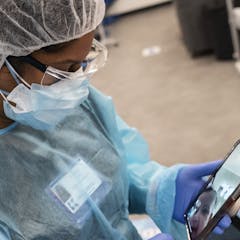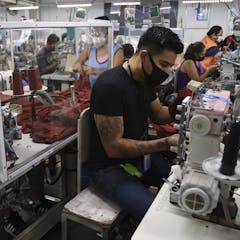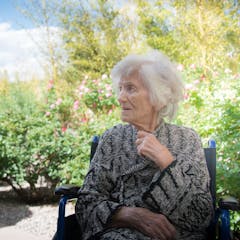
Artikel-artikel mengenai Research Brief
Menampilkan 1 - 20 dari 412 artikel

Family businesses face unique considerations when making leadership decisions.

Rates of sudden unexpected infant deaths have not gone down significantly over the last 20 years, and in some racial groups the numbers are rising.

The type of life and professional experience a police chief has can influence how their departments react to protests, new research finds.

The need to connect is fundamental. But diminishing social ties and community support are contributing to the loneliness epidemic.

While the COVID-19 pandemic spurred significant progress in expanding rural home internet access, these gains are proving temporary as resources dwindle.

Pets provide a source of comfort and intimacy for many owners drifting off to sleep. But according to new research, they may also disrupt your ability to fall or stay asleep.

Vague definitions and heavy penalties mean that legislation could be used to stifle a free press.

Wall Street and big law firms are famous for their hard-charging, cutthroat work cultures. Here’s one reason they should reconsider.

A new study found that temporary assignments in new places reignited nurses’ passion to help others and helped them rediscover the meaningfulness of their work.

Relaxing ‘rules of origin’ restrictions in an existing trade deal could add tens of thousands of jobs in Central America.

The way jobs are structured affects employee mental health, an analysis of more than 18,000 workers shows.

Researchers who analyzed a decade of data detected a reduction in giving after millions of Americans stopped getting a tax break tied to charitable giving.

Medicare covers an annual well-check visit that could potentially identify cognitive issues, but only about half of beneficiaries take advantage of them.

Activities such as deep breathing, muscle relaxation, yoga and meditation help people manage their anger, according to a meta-analysis of studies involving more than 10,000 participants.

Researchers designed an ultrathin pacemaker that can be implanted via minimally invasive techniques, potentially improving recovery time and reducing the risk of complications.

9 Black women who were working on or recently earned their PhDs told a researcher they felt isolated and shut out.

A study of more than 100 teens and their caregivers showed a unique link between hardship and behavior problems.

The toll on wildlife from illegal fishing, bycatch and entanglement in fishing gear is likely underestimated, because it doesn’t account for ‘dark’ fishing vessels, a new study finds.

Essential fats found in fish and nuts are tied to many protective health benefits. Researchers found they may also slow decline of lung function and prolong the lives of pulmonary fibrosis patients.

‘Loopy’ is a multicellular robot inspired by biology and designed to react to its environment without instructions on how to do so.

